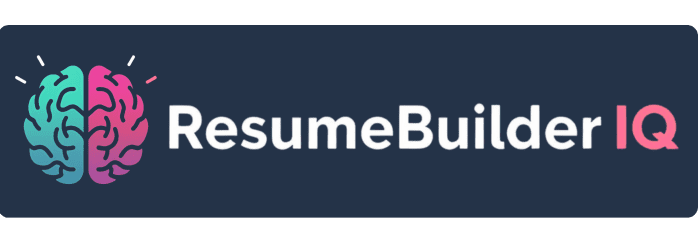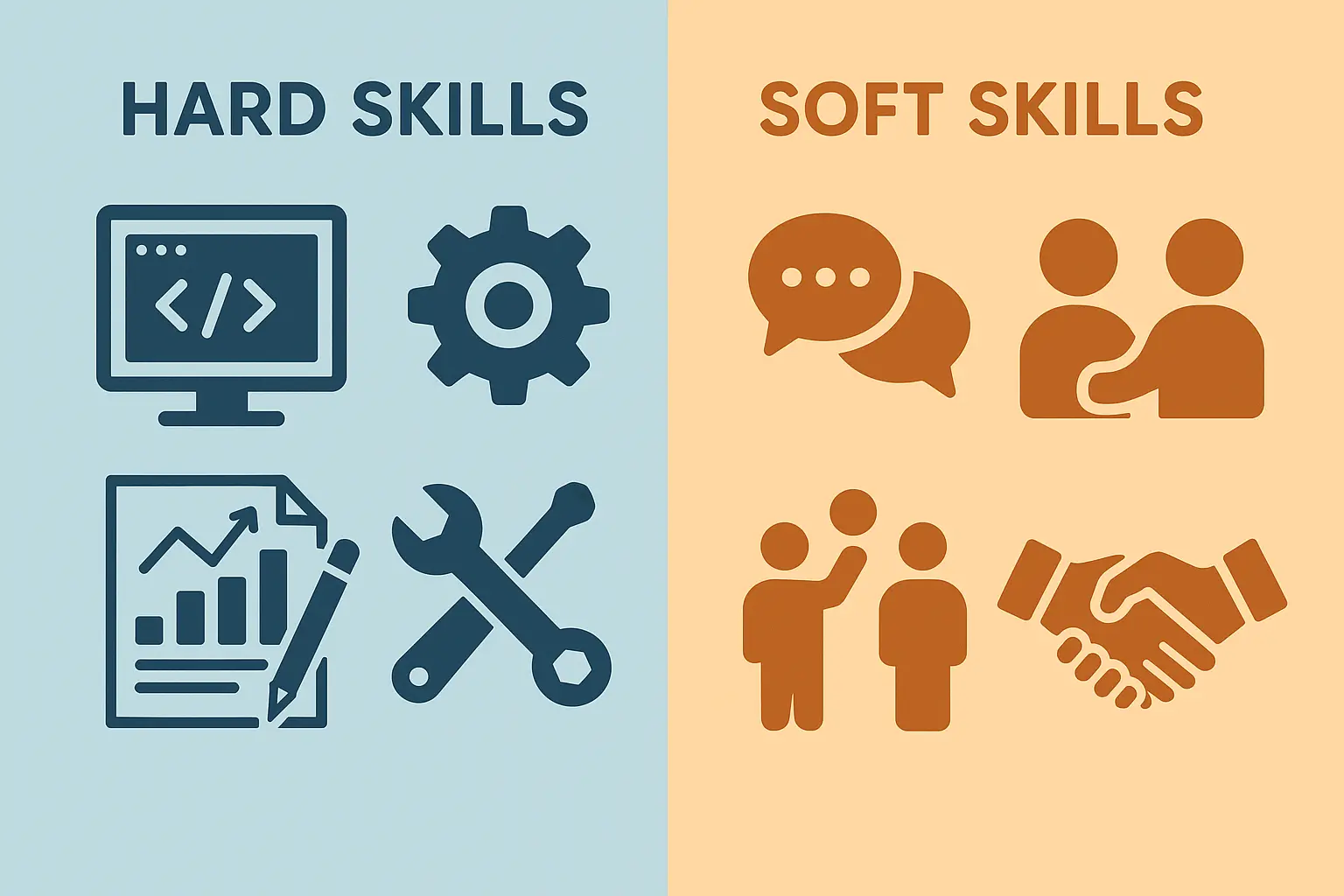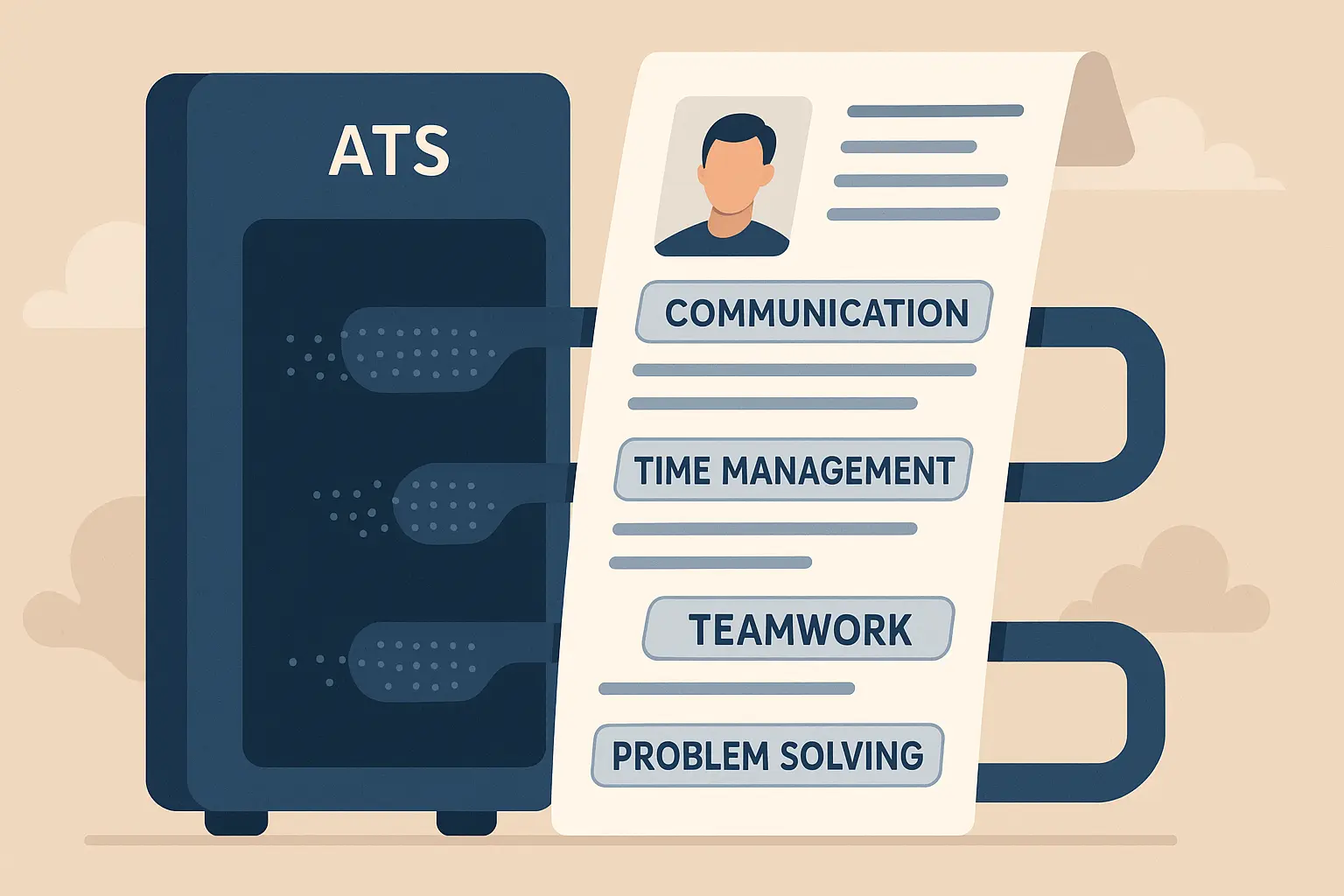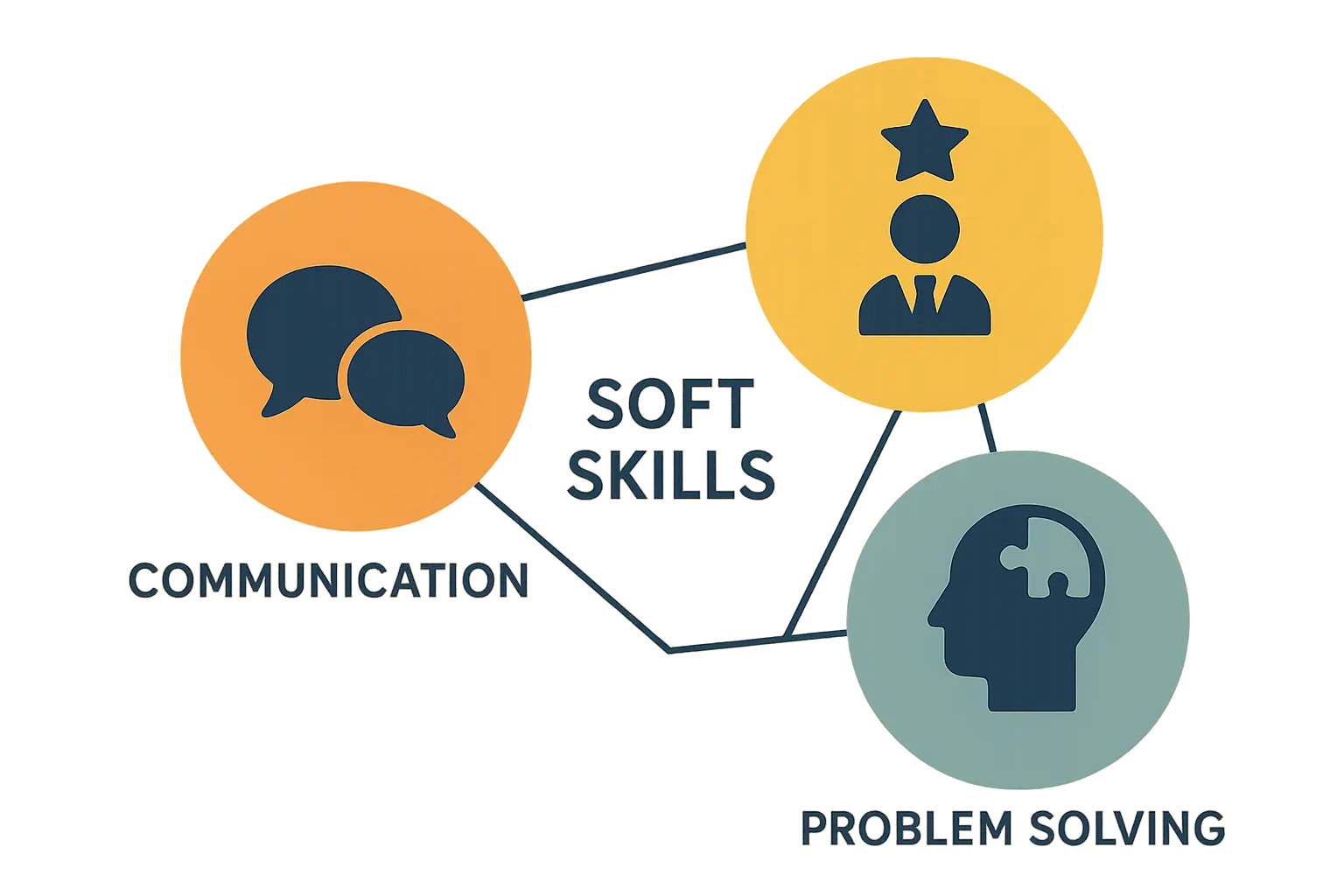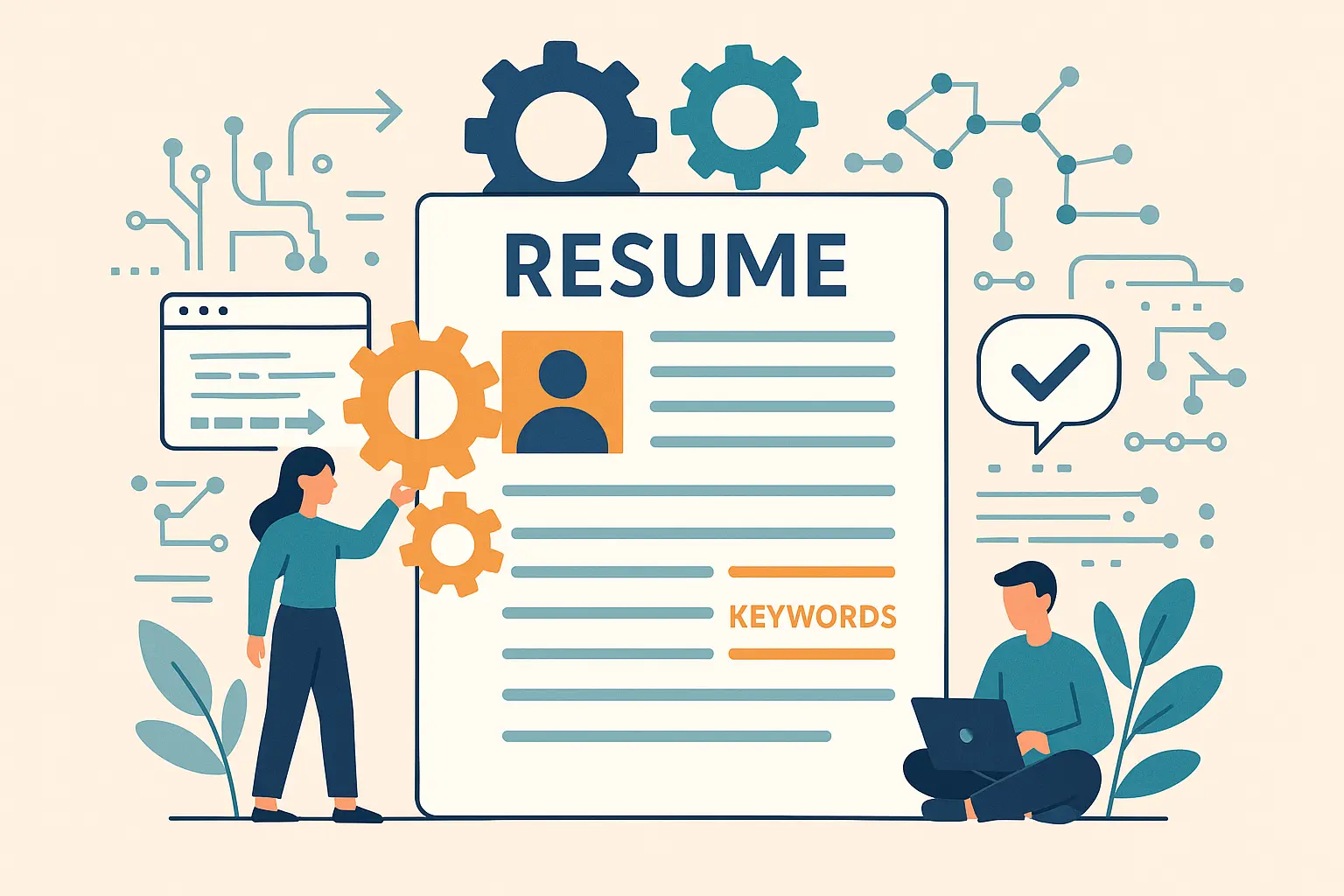Soft Skills for Resume: Why Your People Skills Matter More Than Your Technical Abilities

Here’s the truth nobody talks about: you might lose your dream job not because you lack technical skills, but because you can’t show you’re someone people actually want to work with.
I’ve watched brilliant engineers get passed over for promotion because they couldn’t explain their ideas clearly. I’ve seen talented designers lose clients because they couldn’t handle feedback gracefully. The pattern is always the same: great technical skills, poor people skills, missed opportunities.
This guide breaks down everything you need to know about identifying, presenting, and optimizing soft skills for resume success so you can stand out in today’s competitive job market.
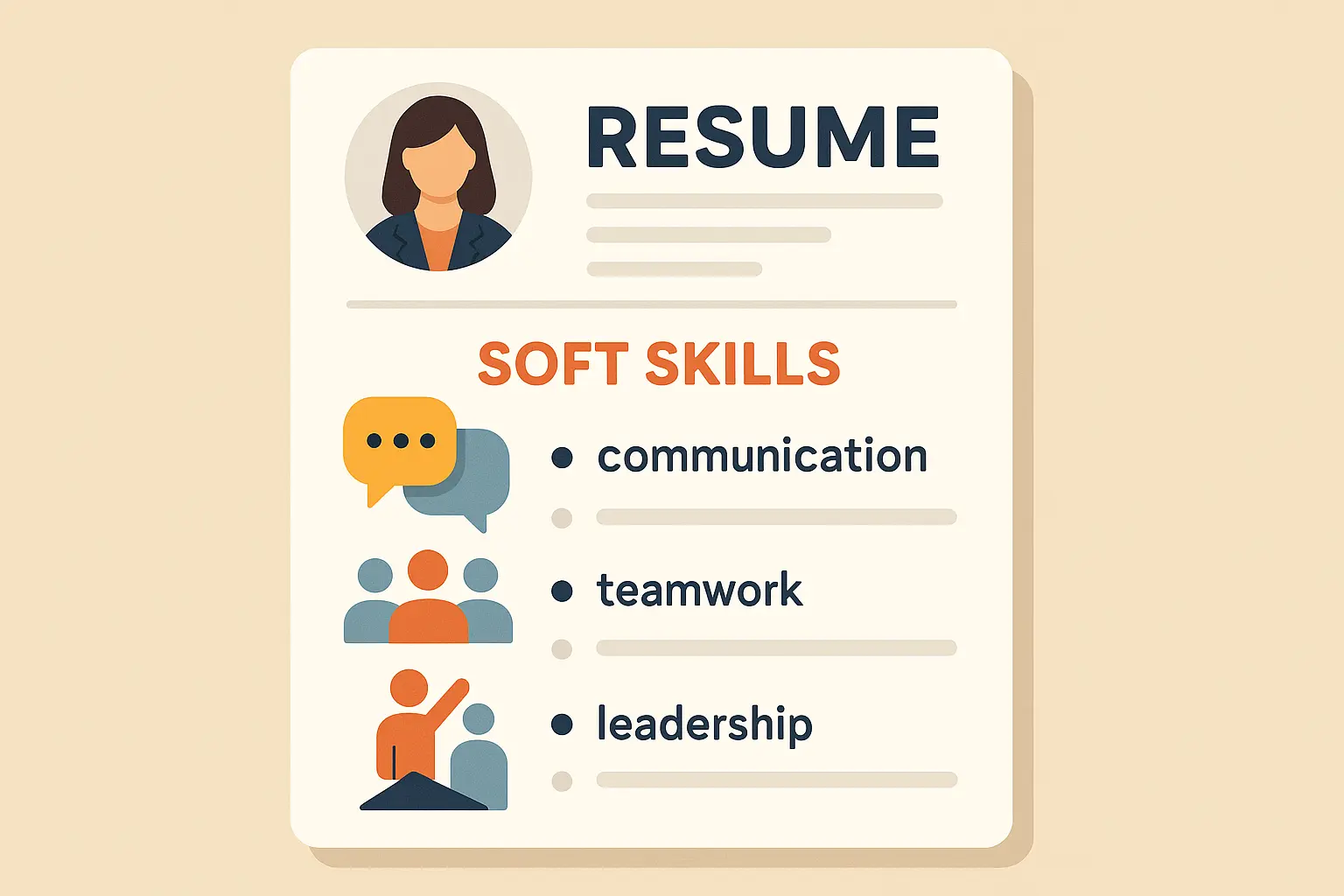
Table of Contents
- Understanding Soft Skills in Today’s Job Market
- Finding Your Actual Soft Skills
- Essential Soft Skills Categories and Examples
- How to Actually Put This on Your Resume
- Common Mistakes and How to Avoid Them
- Final Thoughts
TL;DR
- Soft skills are now deal-breakers in hiring decisions, not just bonus points
- Focus on the big three: communication, problem-solving, and leadership
- Show impact with specific examples and measurable results, not generic buzzwords
- ATS systems scan for soft skill keywords just like technical ones
- Integrate soft skills throughout your resume, don’t just list them in a section
- Different industries prioritize different people skills – research your target market
- Keep developing and documenting new examples as your career progresses
Understanding Soft Skills for Resume and Job Market Success
Let’s be real – the job market has completely flipped the script on what matters. Those “soft skills” your college career counselor mentioned? They’re not soft anymore. They’re make-or-break.
I see it every day: companies would rather hire someone who’s decent at the technical stuff but great with people than a technical wizard who can’t work with others. Why? Because you can teach someone Python, but you can’t teach them not to be a jerk in meetings.
The shift happened because work itself changed. When everyone worked in the same office, you could get by with being the quiet genius in the corner. Now? You’re on Zoom calls with people across three time zones, collaborating with departments you’ve never met, and explaining complex ideas to clients who “aren’t technical people.”
According to a 2024 survey conducted by the National Association of Colleges and Employers (NACE), 93% of employers consider soft skills such as adaptability, leadership, collaboration and problem-solving to be “very important” in hiring decisions (Southeast Missourian). That’s not a typo – it’s almost everyone.
Understanding this evolution helps you position your soft skills as genuine competitive advantages rather than afterthoughts on your resume. When crafting your resume presentation, understanding the professional resume format becomes crucial for effectively showcasing these people skills alongside your technical qualifications.
Hard Skills vs. Soft Skills: What’s the Real Difference?
Hard skills are black and white. You either know Excel or you don’t. You can code in JavaScript or you can’t. Easy to test, easy to prove.
Soft skills live in the messy gray area of human interaction. Can you explain a complex problem to your non-technical boss without making them feel stupid? Can you give feedback that actually helps instead of just criticizing? Can you stay calm when everything’s on fire?
Here’s what I’ve learned from 15 years in hiring: hard skills get you the interview, but showcasing soft skills for resume impact is what actually gets you the job. And more importantly, soft skills get you promoted.
Both categories are essential, but soft skills often determine long-term career success because they influence your ability to build relationships, lead teams, and navigate complex workplace dynamics. You might get hired for your technical abilities, but you’ll get promoted based on your people skills.
Why Modern Workplaces Changed Everything
Remote work didn’t just change where we work – it changed how we need to communicate. You can’t just walk over to someone’s desk anymore. You can’t read body language in a Slack message. You can’t build rapport in the elevator.
The result? Communication skills that were “nice to have” are now absolutely essential. The ability to write clear emails, run effective virtual meetings, and build relationships through a screen – these aren’t bonus skills anymore.
Plus, as AI handles more routine tasks, the uniquely human skills become more valuable. A computer can analyze data, but it can’t comfort a frustrated customer or inspire a demoralized team.
McKinsey recently reported that “as technology advances, the need for social and emotional skills will grow across all industries by 26% in the United States and by 22% in Europe by 2030” (U.S. Chamber of Commerce), demonstrating that your soft skills become more valuable, not less, as automation handles routine tasks.
Industry-Specific Priorities
Different sectors obsess over different people skills. Tech companies prioritize adaptability because everything changes constantly. Healthcare organizations focus on empathy because they’re dealing with people’s lives. Financial services emphasize attention to detail because mistakes cost millions.
| Industry | Top 3 Prioritized Soft Skills | Why They Matter |
|---|---|---|
| Technology | Adaptability, Creative Problem-Solving, Cross-Cultural Communication | Rapid innovation cycles and global teams |
| Healthcare | Empathy, Stress Management, Attention to Detail | Patient care and high-pressure environments |
| Financial Services | Ethical Decision-Making, Attention to Detail, Risk Assessment | Regulatory compliance and client trust |
| Education | Communication, Patience, Cultural Sensitivity | Diverse student populations and learning styles |
| Sales & Marketing | Persuasion, Relationship Building, Emotional Intelligence | Client relationships and revenue generation |
Regardless of industry, highlighting the right soft skills for resume optimization ensures you’re speaking the same language employers are actively screening for.
How Employers Really Evaluate Your People Skills
Forget what you think you know about resume screening. Modern hiring is way more sophisticated.
First, the robots scan your resume. ATS systems don’t just look for technical keywords anymore – they’re hunting for soft skill terminology too. Words like “cross-functional collaboration” and “stakeholder management” matter just as much as “Python” or “Photoshop.”
Then, humans take over. Recruiters use behavioral interviews specifically designed to uncover your people skills. They’ll ask things like “Tell me about a time you had to work with a difficult teammate” or “Describe a situation where you had to explain something complex to someone without a technical background.”
They’re not just listening to your answer – they’re watching how you communicate, how you structure your thoughts, and whether you can tell a coherent story under pressure.
Justin Roth, director of people and culture at Rhodes Convenience Stores, emphasizes the importance of behavioral screening: “We recently started teaching our managers to use behavior-based interviewing styles, asking questions that dig into how job applicants respond in certain situations. You can train someone to stock shelves or run a register, but showing up on time, solving a problem without being asked, treating people with respect, that’s the stuff that really moves the needle for us” (Southeast Missourian).
Understanding ATS resume format requirements becomes essential when optimizing soft skills for resume presentation so your application passes both automated systems and human recruiters.
Finding Your Actual Soft Skills (Not the Ones You Think You Have)
Here’s the uncomfortable truth: most people are terrible at identifying their own soft skills. They either oversell themselves (“I’m a natural leader!”) or undersell themselves (“I’m just good at getting along with people”).
The fix? Get outside perspective. Ask three colleagues what they’d say are your strongest people skills. Ask your boss what makes you valuable to work with. Ask clients what they appreciate about your approach.
You’ll be surprised by the answers. Maybe you think you’re just “good at explaining things,” but others see you as someone who makes complex topics accessible. Maybe you think you’re just “easy to work with,” but others see you as someone who prevents conflicts before they escalate.
Self-Assessment That Actually Works
Effective soft skills assessment goes beyond gut feelings and wishful thinking. Try 360-degree feedback from colleagues, supervisors, and direct reports to get multiple perspectives. Professional assessment tools like StrengthsFinder or emotional intelligence evaluations provide structured insights.
Keep a “wins journal” where you document situations where your soft skills made a measurable difference. When you solve a problem, mediate a conflict, or get praise for your communication, write it down with specifics. You’ll thank yourself later when you’re updating your resume.
Soft Skills Self-Assessment Checklist:
- Gather feedback from at least 3 colleagues or supervisors
- Complete a professional assessment tool (StrengthsFinder, EQ assessment, etc.)
- Analyze your top 3 professional accomplishments for soft skill patterns
- Identify situations where your people skills made a measurable difference
- List specific examples with quantifiable outcomes for each claimed skill
- Cross-reference your skills with target job requirements
- Validate claims with concrete evidence and stories
The Evidence Collection Process
Once you know your strengths, you need proof. Vague claims like “excellent communication skills” are worthless. You need specific examples with measurable results.
Instead of: “Great at teamwork”
Try: “Led weekly cross-department meetings that reduced project delays by 30% over six months”
Instead of: “Strong problem-solver”
Try: “Identified workflow bottleneck costing 5 hours per week; implemented solution that saved team 260 hours annually”
Instead of simply stating “excellent communication skills,” demonstrate impact: “Facilitated weekly cross-departmental meetings that reduced project miscommunication by 40% and improved delivery timelines by 2 weeks on average, resulting in $50,000 in cost savings over 6 months.”
Matching Your Skills to What Employers Want
Your soft skills presentation should support your career trajectory, not work against it. If you’re targeting leadership roles, emphasize team building and strategic thinking. For client-facing positions, highlight communication and relationship management.
Different industries show distinct preferences for specific soft skills. Research shows that “In 2025, the most in-demand soft skills are as follows: Time management, Communication, Interpersonal skills, Work ethic, Attention to detail” (Novoresume), providing clear guidance on which abilities to prioritize.
Research your target industry. Look at job postings. What soft skills appear most often? What language do they use? If every posting mentions “cross-functional collaboration,” make sure you can speak that language.
Essential Soft Skills Categories and Examples
Forget the lists of 47 soft skills you’ll never remember. Focus on the big three that employers consistently prioritize:
Communication (But Not What You Think)
Everyone claims to be a “great communicator.” What employers really want is someone who can:
- Explain complex things simply – Can you describe your technical work to the CEO without using jargon?
- Listen actively – Do you actually hear what people are saying, or are you just waiting for your turn to talk?
- Adapt your style – Do you communicate differently with your boss, your peers, and your direct reports?
- Write clearly – Can you send emails that people actually understand and act on?
Resume example: “Transformed technical documentation process, reducing customer support tickets by 40% through clearer, user-friendly language”
Written Communication That Gets Results
Professional writing encompasses everything from emails and reports to documentation and digital communication. Strong written communication skills demonstrate attention to detail, logical thinking, and the ability to convey complex information clearly to diverse audiences.
This includes creating compelling proposals, writing clear technical documentation, or crafting persuasive marketing copy that achieved specific business objectives. In our increasingly digital workplace, written communication often makes the first impression with colleagues and clients.
Cross-Cultural Communication Skills
Global business environments require sensitivity to cultural differences and the ability to communicate effectively across diverse teams and markets. This competency becomes increasingly valuable as companies expand internationally and teams become more diverse.
Demonstrate this through successful international project management, effective multicultural team leadership, or developing communication strategies for global audiences.
Problem-Solving (The Real Kind)
Not just “I’m good at solving problems” – employers want evidence that you can:
- Think creatively – Do you find solutions others miss?
- Work with incomplete information – Can you make good decisions without having all the facts?
- Stay calm under pressure – Do you think clearly when things go wrong?
- Learn from mistakes – Do you adapt your approach based on what doesn’t work?
Resume example: “Redesigned customer onboarding process after identifying pain points through user interviews, resulting in 50% reduction in support requests and 25% improvement in customer satisfaction scores”
Creative and Innovative Thinking
Generating novel solutions, thinking outside conventional frameworks, and driving innovation show entrepreneurial mindset and competitive advantage. This involves approaching challenges from unique angles and developing creative solutions that others might miss.
Examples include developing innovative products or services, creating new processes that improve efficiency, or finding creative solutions to budget or resource constraints.
Data-Driven Decision Making
Analyzing information, interpreting trends, and making evidence-based decisions demonstrate logical reasoning and business judgment. This competency combines analytical thinking with practical application to drive better outcomes.
Demonstrate through successful market analysis, performance improvement initiatives based on data insights, or strategic decisions validated by measurable results.
Leadership (Even If You’re Not a Manager)
Leadership isn’t about having a title. It’s about:
- Taking initiative – Do you see problems and fix them without being asked?
- Influencing without authority – Can you get people to buy into your ideas?
- Developing others – Do you help teammates grow and succeed?
- Managing up – Can you effectively communicate with senior leadership?
Resume example: “Mentored 5 junior developers, with 100% retention rate and average promotion time reduced from 18 to 12 months”
| Leadership Soft Skill | Definition | Resume Example |
|---|---|---|
| Team Building | Creating cohesive, productive teams | “Built and led cross-functional team of 12 members, increasing project delivery speed by 35%” |
| Conflict Resolution | Mediating disputes and finding solutions | “Resolved 15+ workplace conflicts, maintaining 98% team satisfaction rate” |
| Strategic Thinking | Long-term planning and systems thinking | “Developed 3-year strategic plan that increased market share by 22%” |
| Mentoring | Developing others’ skills and careers | “Mentored 8 junior employees with 100% promotion rate within 18 months” |
| Change Management | Leading organizational transitions | “Managed company-wide software transition affecting 200+ employees with zero downtime” |
Team Building and Collaboration
Creating cohesive teams, facilitating cooperation, and managing group dynamics demonstrate valuable organizational leadership potential. This involves bringing together diverse personalities and skill sets to achieve common goals.
Examples include forming cross-functional project teams, improving team productivity through better collaboration processes, or successfully integrating new team members into existing groups.
Conflict Resolution and Negotiation
Mediating disputes, finding win-win solutions, and managing difficult conversations show mature professional judgment and problem-solving abilities. These capabilities are essential for maintaining productive work environments and achieving business objectives when interests don’t naturally align.
Demonstrate through successful vendor negotiations, team conflict resolution, or stakeholder management in challenging situations.
How to Actually Put This on Your Resume
Here’s where most people mess up. They create a “Soft Skills” section and list a bunch of buzzwords. Don’t do this.
Instead, weave your soft skills throughout your resume:
In Your Professional Summary
Don’t just list skills – show impact:
“Marketing professional with proven ability to build cross -functional relationships and translate complex data into actionable insights. Led team that increased campaign ROI by 35% through improved stakeholder communication and data-driven decision making.”
In Your Experience Section
Every bullet point should tell a story that demonstrates both technical and soft skills:
- “Collaborated with design and engineering teams to launch product feature, managing competing priorities and tight deadlines to deliver 2 weeks ahead of schedule”
- “Presented quarterly results to C-suite executives, translating technical metrics into business impact and securing $500K additional budget”
Strategic Keyword Optimization
Use the language from job postings. If they say “cross-functional collaboration,” don’t say “teamwork.” If they want “stakeholder management,” don’t say “client relations.”
Incorporating industry-specific terminology and variations improves ATS performance and recruiter recognition. Research job postings in your target roles to identify commonly used phrases and terminology.
Soft Skills Keyword Optimization Template:
- Primary skill: [Main soft skill term from job posting]
- Variations: [2-3 alternative phrases for the same skill]
- Context: [Industry-specific application]
- Quantified example: [Measurable outcome demonstrating the skill]
- ATS-friendly placement: [Professional summary, skills section, or experience bullets]
For professionals seeking specialized guidance, exploring top sales resume builders can provide industry-specific insights on presenting people skills effectively.
Integration Across All Sections
Positioning people skills in professional summaries, core competencies sections, and integrated within experience descriptions maximizes impact and visibility. Your professional summary should highlight 2-3 key abilities with brief supporting evidence.
Understanding resume format secrets helps ensure your soft skill presentation follows best practices for both readability and ATS compatibility.
A marketing professional might integrate skills as follows: “Results-driven Marketing Manager with expertise in stakeholder management and cross-functional collaboration. Led team communication initiatives that improved campaign delivery by 25% while managing relationships with 15+ external vendors, resulting in $200K cost savings through strategic negotiation and conflict resolution.”
The Biggest Mistakes People Make
Mistake #1: Generic language
“Excellent communication skills” tells me nothing. “Reduced customer complaints by 30% through improved email response protocols” tells me everything.
Mistake #2: No proof
Claims without evidence are just noise. Every soft skill needs a supporting example with measurable results.
Mistake #3: Wrong skills for the role
Don’t list “public speaking” if you’re applying for a behind-the-scenes analyst role. Match your skills to what the job actually requires.
Mistake #4: Overselling
If you’ve never managed people, don’t claim to be a “natural leader.” Be honest about your experience level while highlighting growth potential.
According to research on workplace skills demand, “the top five soft skills in demand were management, communication, customer service, leadership, and sales” (EdgePoint Learning), highlighting the critical importance of people skills in today’s job market.
Keeping Your Skills Current
Soft skills aren’t set-and-forget. They need constant development and updating based on market demands.
Professional Development Planning
Creating structured approaches to skill enhancement through training, mentoring, and practical application ensures continued career relevance. This might include leadership development programs, communication workshops, or seeking stretch assignments that challenge your people skills.
Document these development efforts and their outcomes to strengthen your resume over time. Professional development shows commitment to growth and provides fresh examples of your evolving capabilities.
Stay current by:
- Following industry publications for trending skill requirements
- Seeking feedback from colleagues and supervisors
- Taking on stretch assignments that challenge your people skills
- Joining professional organizations or networking groups
- Attending workshops or training on communication and leadership
Market Feedback and Resume Iteration
Track your progress by documenting new examples of your soft skills in action. Analyzing application responses, interview feedback, and industry trends enables strategic refinement of your presentation and positioning.
Pay attention to interviewer questions about specific abilities. Use this feedback to continuously improve how you present and discuss your people skills. The best resumes evolve based on real-world performance data rather than theoretical best practices.
Resume Builder IQ’s AI-powered platform can help you navigate the complex challenge of presenting people skills effectively. The platform provides intelligent suggestions that transform generic soft skills into compelling, quantifiable achievements while ensuring ATS compatibility. With industry-specific templates and keyword optimization, you can confidently present your abilities in ways that resonate with both automated systems and hiring managers.
Final Thoughts
Your people skills represent the human element that makes you irreplaceable in an increasingly automated world. While artificial intelligence can handle many technical tasks, it can’t replicate your ability to build relationships, navigate complex workplace dynamics, or inspire teams toward common goals.
Here’s what I want you to remember: your technical skills might get you noticed, but your people skills determine whether you get hired, promoted, and ultimately succeed in your career.
The key isn’t having every soft skill imaginable – it’s identifying your genuine strengths, collecting concrete evidence of their impact, and presenting them in ways that resonate with employers.
Start today: Pick three soft skills that align with your career goals. Find specific examples of each one creating measurable value. Update your resume to showcase these examples with quantified results.
Remember that people skills aren’t just nice-to-have additions to your technical qualifications – they’re often the deciding factors in hiring decisions. Employers can train technical capabilities, but they can’t easily teach emotional intelligence, leadership presence, or genuine communication abilities.
When you effectively demonstrate these abilities with specific examples and quantifiable results, you position yourself as someone who doesn’t just do the job but elevates everyone around them. The investment you make in developing and presenting your people skills pays dividends throughout your entire career.
Your resume should tell a story about someone who gets things done through people, not despite them. When hiring managers see quantified examples of your communication improving team performance or your problem-solving preventing costly mistakes, they envision you making similar contributions to their organization.
In a world where AI can handle more technical tasks every day, your ability to work with people, solve complex problems, and communicate effectively — the core soft skills for resume success — becomes your competitive advantage. Don’t let poor presentation of these critical skills cost you opportunities.
Your people skills aren’t just part of your professional toolkit – they’re often the most important part.
